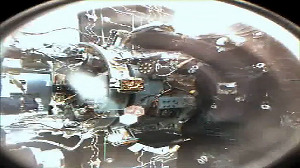The National Manufacturing Policy (NMP) aims to increase the percentage share of the sector in the gross domestic product (GDP) to 25 by 2025 from the present 16.
 Even so, the administrative step, which aims to create 100 million jobs over a decade, has not addressed the bureaucratic hurdles in getting labour clearances inside the national manufacturing zones (NMZ).
Even so, the administrative step, which aims to create 100 million jobs over a decade, has not addressed the bureaucratic hurdles in getting labour clearances inside the national manufacturing zones (NMZ).
Sources in the labour ministry say minister Mallikarjun Kharge has had his way in the Cabinet to ensure that the NMZs did not curtail labour laws. Further, Kharge has managed to keep the trade unions happy by fetching legitimacy to workers' unions inside the NMZs.
Also, guidelines for framing of the exit policy inside the NMZs have been been kept in concurrence with the requirements of the labour ministry.
While the special economic zones have seen several labour laws being by-passed within their geographical confines, that is not the case with the NMP.
As a labour ministry official, who was involved in the framing of the policy that got government nod three weeks ago, notes, the policy has succeeded in addressing all the concerns of the ministry.
"The part relating to labour in the NMP is largely the input we had sent to the DIPP (Department of Industrial Policy and Promotion)," he adds. "There is no change in either any labour law or its implementation inside an NMZ."
Officials in the know of the development say there is only change that has been made in the policy when it comes to labour laws: to integrate various labour offices under a single vertical of the CEO.
Under the NMP, which the Union Cabinet approved on October 25, the powers to enforce and inspect labour laws have been transferred to the CEO of the NMZ.
However, the powers of designing the enforcement mechanism have been retained by the labour ministry. According to the ministry's officials, this meant no change in the functioning of the labour bureaucracy.
The ministry and the DIPP - it spearheads the NMP - had for long disagreed over the agency that would enforce the labour laws in the NMZs.
Earlier, the ministry maintained that "under no circumstances" would it "outsource" labour inspection powers to any other agency, much to the displeasure of the DIPP.
Finally, both reached an agreement after the ministry was allowed to handle the enforcement mechanism of labour laws. The DIPP was made happy after the clearance of its proposal that an NMZ CEO should be the head of the labour machinery.












 © 2025
© 2025